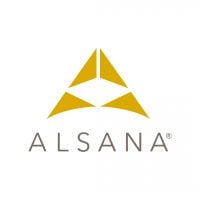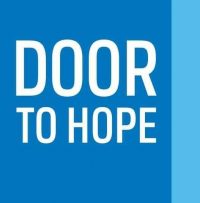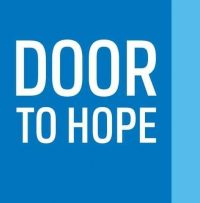Harmony Place
Drug Rehab Center in Monterey, California
Harmony Place offers a comprehensive and personalized drug rehabilitation program which includes inpatient and outpatient options such as detoxification, counseling, educational activities, support meetings, dual-diagnosis care, and aftercare for long-term sobriety.
About Harmony Place in California
Harmony Place, situated in Monterey, California, specializes in treating co-occurring disorders, focusing on eating disorders, addiction, and psychiatric conditions in adults aged 18 and above. They offer outpatient treatment, including partial hospitalization and intensive outpatient programs.
- Partial hospitalization program: Meets six days a week for five hours, providing individual therapy, psychiatric care, group therapy, dietitian sessions, holistic and evidence-based interventions, and peer support services.
- Intensive outpatient program: Meets three days a week for three hours, offering individual therapy, group therapy, family therapy, and peer support services, along with dietician and psychiatrist support.
- Transitional living program: Allows clients to reside in a therapeutic environment near the treatment center while undergoing outpatient treatment, adhering to house rules and maintaining their treatment plan.
Harmony Place holds accreditation from JCAHO and possesses a valid State License, ensuring clients receive high-quality, evidence-based treatment. The facility accepts most insurance plans, including Amerigroup, Anthem, Blue Cross Blue Shield, ComPsych, Tricare, Ambetter, Humana, and United Healthcare, with out-of-network benefits varying.
The center treats a range of addictions, including alcoholism, opioid addiction, drug addiction, and substance abuse, as well as mental health issues and eating disorders. Treatment methods encompass evidence-based therapies, holistic approaches, and personalized care through various levels of care, such as aftercare support, dual-diagnosis treatment, and intervention services.
Genders
Ages
Modality
Additional
Accreditations
State License

JCAHO
Conditions and Issues Treated
Substance Abuse Treatment is important when getting sober, as it helps addicts learn the skills they need to live a clean life. There are many different kinds of recovery treatment, including but not limited to medication-assisted therapy, behavioral therapeutic approaches, self-help groups, and counseling. Each treatment has its benefits that help addicts recover.
Counseling can help addicts learn the skills they need to live sober lives. It can be used to treat underlying mental health issues, like depression or anxiety, that could lead to relapse. Counseling can also help people find work, deal with family problems, and learn to manage living without drugs.
With so many people addicted to opioids, we need to help those who want to quit. The cycle begins when opioid addicts take opioids for a painful injury. When someone starts taking their medication differently or in excess, it means they’re addicted and at risk of overdosing.
In , detoxing from these types of treatments is the most effective way to beat this. Most facilities begin with medical assistance and then provide counseling services; rehabilitation follows after successful treatment.
Dual diagnosis refers to someone who has both an addiction and a mental or emotional illness. Dual diagnosis treatment includes therapy for both issues simultaneously, allowing for effective treatment of either.
Sometimes people with addiction disorders also have co-occurring disorders like depression, anxiety, bipolar disorder, etc. These require specialized treatment programs that address both drug and alcohol addiction as well as psychiatric illnesses. Some rehabilitation facilities provide patients with co-occurring disorders a program with highly integrated services and a clean, distraction-free environment.
Levels of Care Offered
This center offers a variety of custom treatment tailored to individual recovery. Currently available are Aftercare Support, Drug Rehab, Dual-Diagnosis, Inpatient, Intensive Outpatient, Intervention, Outpatient, Partial-Hospitalization, Residential, Sober-Living / Half-Way, with additional therapies available as listed below.
Inpatient treatment is a form of recovery used in drug rehab. Inpatient recovery offers individual therapy, groups, and family therapy to ensure that the addict has the best recovery possible. A variety of treatments are provided in this type of recovery, depending on what treatment the addict needs at that particular time.
The length of inpatient addiction treatment depends on the addict and their addiction. Inpatient rehabilitation can last anywhere from 30 days to 90 days, depending on how severe the drug abuse is. Inpatient rehab is a costly drug treatment, costing anywhere from $30k- to $60k. However, insurance often offers help in covering these costs.
An intensive outpatient program (IOP) is effective for drug rehab, but it can take six months to several years to complete. It’s the most popular type of drug rehab program in the United States. One example of a successful IOP success story is actor and comedian Chris Rock, sober since 1990.
An IOP allows participants to spend nights at home while attending meetings throughout the day. It’s a good way for drug addicts to make a recovery plan in an outpatient setting while still supporting their loved ones.
Alcohol or drug addiction, or co-occurring disorders, are treated in an outpatient program. The patient must attend therapy and other programs at the facility but can return home each night.
Outpatient treatment allows recovering addicts to live at home while receiving addiction treatment. Outpatients can attend group sessions for a few hours per week. Outpatients may also continue to work full time and study/attend school without interruption if they choose.
A popular way of getting drug treatment is through a Partial Hospitalization Program. These programs are short and intensive, allowing for more freedom in family visits. Patients can check in with the program anywhere from 18 to 30 hours per week but only sleep at home at night. The program may last anywhere from one to six months.
Sober living homes, offered by rehabilitation facilities, help recovering addicts transition back into society. These homes have rules and regulations that must be followed to maintain sobriety. They also provide resources such as vocational training and therapy sessions.
Residential treatment programs are those that offer housing and meals in addition to substance abuse treatment. Rehab facilities that offer residential treatment allow patients to focus solely on recovery, in an environment totally separate from their lives. Some rehab centers specialize in short-term residential treatment (a few days to a week or two), while others solely provide treatment on a long-term basis (several weeks to months). Some offer both, and tailor treatment to the patient’s individual requirements.
Intervention services are often the final safety net for individuals struggling with addiction. The process of an intervention starts when family or friends get together to talk about how they think their loved one’s life has been impacted because of addictive behaviors and why treatment is needed for them to move forward into a healthy future. The discussion includes information on what different types of treatments will do, just in case your loved ones agree that this might be necessary at some point during the conversation.
The accomplishment of completing a drug or alcohol treatment program is just the first step. Once that is complete, aftercare support comes into play. This includes helping people adjust to life without substances outside of guidelines with assistance like getting sober living accommodations and career counseling and AA/NA programs for those who are struggling between sobriety or want continued help in maintaining it once they have completed their initial rehabilitation at an addiction facility.
Aftercare comprises services that help recovering addicts readjust to normal day-to-day activities while working on specific issues. These problems include psychiatric issues, family problems caused by substance abuse, continuing education pursuits if desired during rehab, etc. These can last up to one year+ depending on what’s needed most urgently upon completion of earlier stages.
Therapies & Programs
Different people react differently to various treatment options. Some drug rehabilitation centers offer individualized treatment that caters to the specific needs of a drug addict. The best treatment option varies on an individual depending on the type of drug abused, life history, medical condition of the person, social circumstances, and the environment they live in now.
When a person enters drug rehab, they usually have anti-drug associations such as withdrawal symptoms, stress, cravings, etc. The first step of drug rehab is to detoxify the body from any residual substances in it. Drug rehabilitation centers usually employ trained medical professionals to help in this process. Usually, the initial detoxification lasts for five days, where the person is monitored under close supervision.
Family therapy sessions typically involve the addict and their family members. During these sessions, a therapist will work with everyone involved to help them understand addiction and find healthy ways of coping without substance abuse.
Some addicts might feel embarrassed about their substance abuse problems. By encouraging family members to attend these sessions, therapists can show addicts that they’re not alone in dealing with addiction. Therapists can also work with family members to help them understand addiction and learn how to offer support and encouragement to their loved one as they deal with substance abuse issues.
Attending group therapy at Harmony Place in , is a useful way for those seeking sobriety to realize they aren’t the only one going through it.
This is when a group of people on different recovery phases get together and talk about what they’re going through, their triggers, successes, and failures. This can include alternative types of therapies too! Group therapy may occur on an outpatient or inpatient basis with groups that have no pre-existing relationships outside the session, unlike support groups where everyone already knows each other beforehand.
Trauma therapy is a form of therapy used to help people process and understand past traumas. This can help struggling addicts, as many people turn to drugs or alcohol to mask the pain of their past. Trauma therapy can be done in several ways, such as through visualization, discussion, and writing down thoughts and feelings. The goal is to help the individual understand why they are having problems coping with certain situations and changing how they think and react to things. This is often done in tandem with other therapies to treat the underlying issues associated with addiction.
The idea behind trauma therapy is that while some people can experience traumatic events and not have lasting psychiatric symptoms, many others will. In these cases, memories get hidden from consciousness but continue to influence how the person processes and copes with things in their life. They may avoid situations that resemble what happened or become suddenly angry or irritated to a situation that reminds them of a past event. With the help of a therapist, people can go back over memories and experiences. This helps them understand why they are having problems coping with certain situations and changing how they think and react to things.
Cognitive Behavioral Therapy is a type of psychotherapy that helps people address the thoughts and behaviors that may have led to their addiction. It also helps change negative thoughts into positive ones and promotes healthy communication between addicts and those around them. CBT is an efficient treatment for individuals suffering from all sorts of addictions.
Cognitive Behavioral Therapy (CBT) focuses on the underlying thoughts and behaviors that caused the problem of addiction in the first place and may cause a relapse. Negative feelings are common in drug abuse disorders, but they can lead to co-occurring disorders if not recognized. CBT involves strategies that help to change the behavior pattern by restructuring negative thoughts into positive ones. It helps to remove these feelings, and it provides long-term benefits. Also, CBT promotes self-awareness, self-control and can be administered as a mono-therapy or as part of combination therapy.
Eye Movement Desensitization and Reprocessing (EMDR) is a treatment modality used with patients suffering from post-traumatic stress disorder (PTSD) or drug and alcohol cravings. EMDR is considered to be a form of cognitive-behavioral therapy (CBT) and exposure therapy. It is believed to help patients reprocess their memories, thoughts, and emotions to heal from the trauma of their experience.
Life Skills Services offered at Drug Treatment Centers assists addicts in their recovery by teaching them healthy coping mechanisms that will aid them in becoming sober, focussing on helping people enter into, and maintaining long-term sobriety. Drug Treatment Centers provide Life Skills Services at varying levels of intensity, specific to the needs and requirements of each patient.
Life Skills Services offered at Drug Treatment Centers assists addicts in their recovery by teaching them healthy coping mechanisms that will aid them in becoming sober, focussing on helping people enter into, and maintaining long-term sobriety. Harmony Place in Monterey, California provide Life Skills Services at varying levels of intensity, specific to the needs and requirements of each patient.The benefits of Life Skills Services offered at Drug Treatment Centers:
- Restores hope and empowerment — Helps addicts believe that recovery is possible and instills a new confidence in their ability to achieve a positive, drug-free future
- Enhances family involvement — Encourages families to get involved in the recovery process and supports their understanding and encouragement of healthy behavior.
- Increases patient’s compliance — Helps patients take responsibility for and ownership of their recovery and encourages continued progress
- Reduces relapse rates — Encourages long-term abstinence and emphasizes the importance of establishing sober support systems.
Good nutrition can be difficult for people recovering from addiction because they may not feel like eating while they are experiencing the physical and emotional side effects of detoxing.
Nutrition therapy can help addicts in the following ways:
- Helps individuals to understand which foods promote good health and support recovery that will assist them during detox
- Provides guidance and education about how to maintain a nutritious diet so they can stay healthy during recovery
- Improves their overall health and well-being, which can reduce the severity of substance withdrawal symptoms.
Nicotine replacement therapy is a popular method of treatment that helps individuals overcome their addiction to cigarettes by providing them with safer alternatives. Nicotine replacement options can include:
- Inhalers
- Gum
- Patches
These treatments are often used in combination with other therapies, such as cognitive behavioral therapy or motivational interviewing, to help individuals more easily transition into a smoking-free lifestyle.
Payment Options Accepted
For specific insurance or payment methods please contact us.
Is your insurance accepted?
Ask an expert, call (888) 674-0062
Additional Details
Specifics, location, and helpful extra information.
Monterey, California 93940 Phone Number(855) 652-9048 Meta DetailsUpdated April 15, 2024
Staff Verified
Harmony Place Patient Reviews
There are no reviews yet. Be the first one to write one.
Monterey, California Addiction Information
More than 3 million of California's citizens are addicted to illegal drugs. Almost 800,000 people use hard drugs, almost 5 million use marijuana, and another 2.1 million abuse alcohol every year. Other substance abuse issues such as binge drinking and teen drug use are also common. Many illegal drugs such as cocaine, heroin, methamphetamine, and marijuana are smuggled into the state from Mexico.
18% of young adults in Monterey, California suffer from drug addiction problems. Opioids like heroin and prescription painkillers are the most common forms of drug abuse or addiction. There has been a 200% increase in drug-related deaths over the past 10 years. Around 38% of all homicides in Monterey are related to drug abuse and addiction. Some of the most common types of treatment include inpatient rehabilitation, outpatient rehabilitation, and 12-step programs.
Treatment in Nearby Cities
- Stockton, CA (98.9 mi.)
- Irvine, CA (306.6 mi.)
- Tarzana, CA (254.2 mi.)
- North Hollywood, CA (259.7 mi.)
- Brawley, CA (440.3 mi.)
Centers near Harmony Place
The facility name, logo and brand are the property and registered trademarks of Harmony Place, and are being used for identification and informational purposes only. Use of these names, logos and brands shall not imply endorsement. RehabNow.org is not affiliated with or sponsored by Harmony Place.









